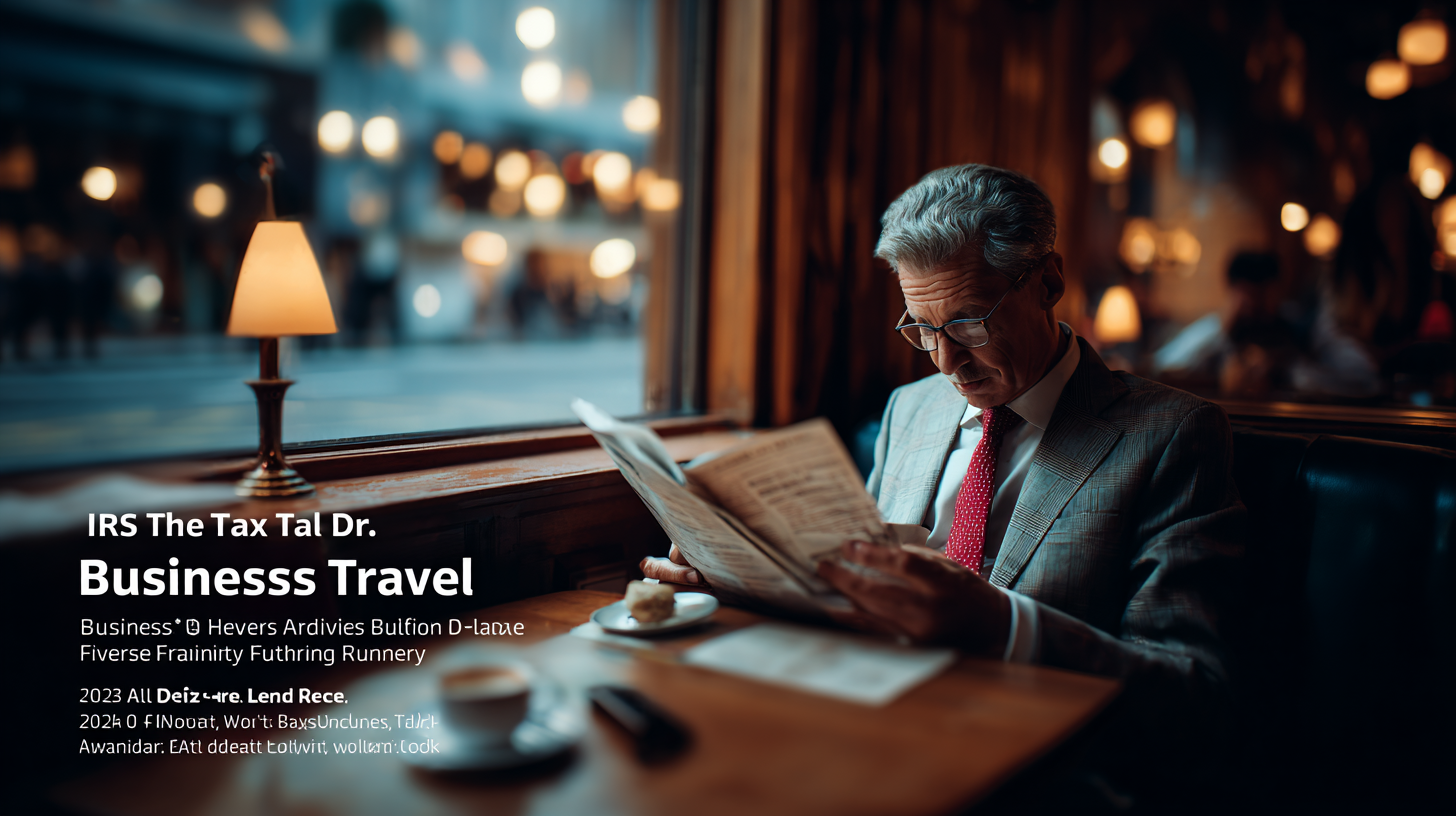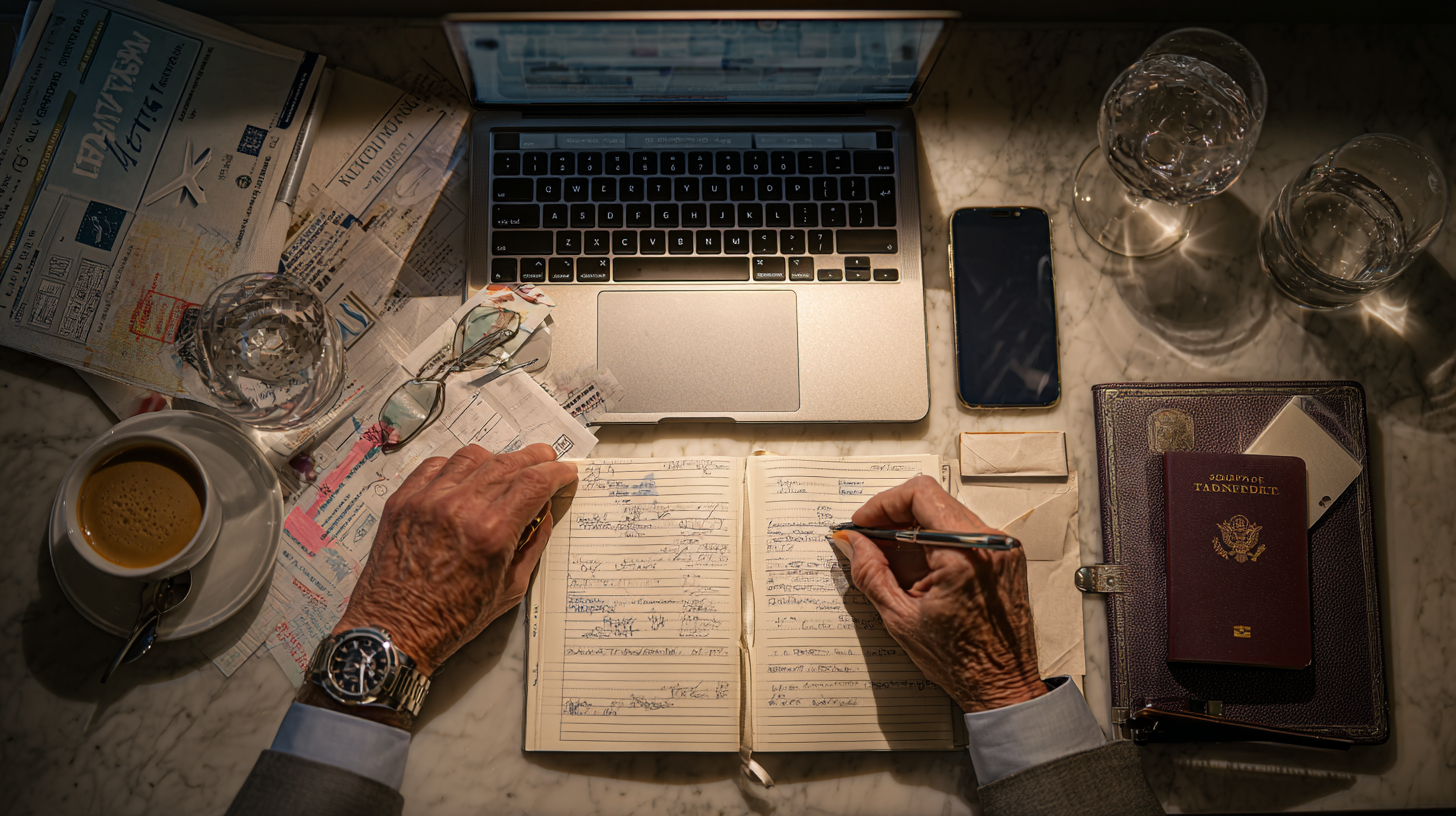Business Travel Demystified: A Frequent Flyer’s Guide

I often find myself fascinated by the complexities of business travel and how easily these journeys can mix work with leisure. Over the years, I’ve observed that respecting specific guidelines can significantly impact tax benefits, ensuring that our adventures away from home are both productive and financially advantageous. According to industry data from 2024, business travel in the U.S. continues to experience sustained growth, making it more essential than ever to stay informed about IRS rules and documentation.
1. The IRS Definition of Business Travel

IRS Tax Tip 2023-15 states that a trip qualifies as business travel if it requires you to travel away from your primary work location—often called your “tax home”—and involves at least one overnight stay. In my own travels, I’ve witnessed how simple it is to overlook these requirements when the lines between personal and work travel start to blur. Yet meeting these criteria remains the first and most critical step in ensuring that expenses are deductible.
I’ve also noticed that many travelers underestimate the importance of the “ordinary and necessary” rule. When flights, lodging, and meals are appropriate for the industry and reasonably tied to your work, they typically count. Meanwhile, extravagant upgrades and costly detours can raise red flags. A recent study suggests that traveling professionals who document their daily business activities diligently are far more likely to enjoy seamless tax filing.
Additionally, if you’re juggling multiple projects or remote engagements, be mindful of how much time you plan to spend on leisure. Extended vacations or sightseeing tours might invalidate portions of your deductions, so it’s crucial to track every business-related activity in detail.
2. Understanding Your Tax Home

Clarifying your tax home is essential. While it might be tempting to define your home base as wherever your family resides, the IRS typically focuses on where you conduct most of your business. In my experience, shifting work assignments can create confusion, especially if you routinely move from one region to another. That’s why updating your records whenever you change your main work location is vital to staying compliant.
Temporary assignments shorter than 12 months usually open the door to tax deductions for related travel costs like transportation, lodging, and half of your meal expenses. However, if your assignment becomes indefinite or stretches beyond a year, those once-deductible costs can suddenly turn nondeductible. According to a 2025 tax guideline update, ensuring you have clear project timelines can help you maintain proof of your assignment’s temporary nature.
Over time, I’ve learned that proper planning and honest self-evaluation of one’s tax home are indispensable. A little foresight can prevent misunderstandings with the IRS, particularly if you frequently hop between states or countries for short-term gigs.
3. Keeping It Ordinary and Necessary

Business travel expenses must remain “ordinary and necessary,” meaning they are typically expected for professionals in your field. For instance, attending a major industry conference easily qualifies, but turning that conference into a week-long luxury retreat may not. From my perspective, an essential step is to periodically ask, “Is this expense truly part of my business itinerary,” before deciding whether to claim it.
Meals, accommodations, and incidental costs can generally be listed as deductions if they are directly connected to work. However, lavish treatment or significant leisure excursions are another matter. A recent industry report highlighted that individuals who meticulously differentiate personal activities from business tasks experience fewer audits and disputes. In my own practice, I usually keep an itinerary that highlights the exact hours I dedicate to meetings or research to confirm the nature of my trip.
When traveling domestically, as long as most of your days are spent on business, you should remain within safe parameters. International travel laws can be more complicated—it’s often recommended to keep personal elements to less than 25% of your total trip to preserve that all-important business classification.
4. Documenting Every Step

Over time, I’ve learned that you can never have too much documentation. From boarding passes and hotel receipts to detailed expense logs, each document can be a lifeline during tax season. Not only does having well-organized paperwork streamline filing, it also offers a clear path to confirm your deductions if scrutinized.
One of the best tools I’ve encountered are digital accounting platforms, which help convert the chaos of travel receipts into polished financial statements in real time. According to finance experts, maintaining digital records reduces the risk of losing crucial proofs of purchase—receipts can fade, emails get deleted, and notebooks can be misplaced. By adopting automated solutions, it’s much simpler to reference each transaction, providing peace of mind no matter where you fly.
I also recommend logging insightful details, such as the business purpose of each expense, the names of people you met on a trip, and the number of hours spent in meetings. The more specifics you compile, the stronger your case becomes for legitimate deductions.
5. Domestic vs. International Trips

When traveling within your own country, the rules are often less restrictive. You typically just have to show that most of your trip was devoted to work. However, I’ve noticed in my international excursions that different tax regimes and regulations can complicate matters. Some nations require additional paperwork or place caps on what can be deducted. It’s always wise to check ahead or consult a professional before departing on a global assignment.
Industry data from 2025 reveals that cross-border business travel is on the rise, especially for freelancers and remote contractors. That means it’s increasingly common for families or friends to join these trips. If non-working companions come along, remember that you can only deduct the portion of shared expenses that directly relates to your professional needs—such as a single-occupancy hotel room versus a family suite. In my own experience, separating expenses upfront helps avoid confusion when you file your tax return later.
Simply put, any costs covered for a companion generally do not count unless that individual is legitimately contributing to the business purpose—and that usually requires formal documentation or proof of work responsibilities. While it’s wonderful to have travel companions, clarity on these distinctions can save you from unwelcome surprises afterward.
Final Thoughts

Business travel can be both exhilarating and financially rewarding, provided you approach it correctly. I’ve realized that the key lies in balancing professional ambition with diligent record-keeping and a keen eye for what counts as ordinary and necessary. By clarifying your tax home, ensuring each assignment is legitimately short-term, and observing local regulations, you stand a better chance of maximizing the rewards of your trips.
Whether you fly domestically or head overseas, remember that every destination has its nuances. Continue to document, gather receipts, and ensure each expense has a valid link to your work. With a bit of planning, you’ll uncover opportunities to make even the most packed itinerary efficient and cost-effective.
Amelia Yeaher’s Take
From the countless travels I’ve embarked on, I’ve seen how a little research goes a long way. Combining the thrill of exploration with the practicality of earning legitimate deductions not only improves your bottom line but also enriches the entire travel experience. Even in a fast-evolving world of AI-driven booking tools and mixed reality experiences, a good old-fashioned paper trail still remains a vital defense.
Ultimately, being proactive pays off. Take a moment to refine your itinerary and highlight your true business goals before you even pack your bags. By doing so, you’ll navigate the skies and the tax code with equal ease.
Seat5A is your window to endless travel possibilities.






